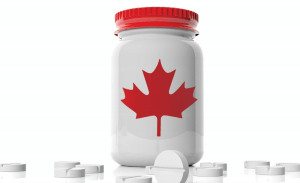 A federal intrusion that disrupts coverage for three quarters of the population, requires tax hikes and spending cuts, and leads to less drug access hardly seems like a political winner. But neither is silence on the other side of the debate, writes Sean Speer.
A federal intrusion that disrupts coverage for three quarters of the population, requires tax hikes and spending cuts, and leads to less drug access hardly seems like a political winner. But neither is silence on the other side of the debate, writes Sean Speer.
By Sean Speer, November 14, 2018
As we approach the 2019 federal election campaign, we seem to be moving towards to a major policy conflict between political parties on pharmacare and the federal role.
The debate will hinge on whether we should pursue targeted or sweeping reforms, whether we prioritize clinician and patient choice or cost control, and whether we wish to see a more or less expansive role for Ottawa in health care.
This debate will only unfold, however, if both sides present credible plans. It won’t be enough for pharmacare critics to merely critique the flaws of national pharmacare. That’s the easy part. It will behoove opponents to develop and put forward a better alternative that targets those who need greater public support without harming those who are well served by the current mix of public and private insurance.
We don’t know precisely where the government will ultimately land on the file. But we have some signs. Its members on the House of Commons Health Committee have strongly endorsed a pan-Canadian, single-payer scheme. Eric Hoskins, the chair of the government’s advisory panel currently studying the issue, has spoken positively of the “the vision of national pharmacare.”
This impulse isn’t wholly unjustified. There’s a small yet vulnerable share of the population without private or public drug coverage. There are also some who lack catastrophic coverage for high-cost drugs. And out-of-pocket spending, which tends to be regressive, has been rising across the country. These are legitimate public concerns that require a policy response.
But a single-payer pharmacare scheme is a cure that’s worse than what ails the system. It would disrupt coverage for the 77 per cent of the population generally satisfied with the status quo. It would impose significant new costs on the federal government. It would almost certainly involve poorer drug access and less clinician and patient choice. And it would thrust Ottawa into provincial jurisdiction with no competency or expertise.
A federal intrusion that disrupts coverage for three-quarters of the population, requires tax hikes and spending cuts, and leads to less drug access hardly seems like a political winner. But neither is silence on the other side of the debate. Ignoring the real challenges facing a small yet growing share of the population is a recipe for ending up with a deeply flawed pharmacare policy.
What would a better policy alternative entail?
It would start by recognizing that the current mix of public and private coverage generally serves most Canadians well. The goal then should be to build on what’s currently working and fill gaps where they exist.
The two areas where there seems to be a problem are: (1) the cohort without any insurance, and (2) the cohort without catastrophic coverage. These are the two groups that Ottawa ought to target.
The Medical Expense Tax Credit is presently too small to make much of a difference. It’s non-refundable and the generosity is too limited. But it can form the basis of much greater federal support for the purchase of private health insurance and catastrophic drug spending. It should be reconfigured and redesigned as a new, refundable tax credit that significantly defrays the cost of health-related expenditures, including insurance premiums.
Suppose you set the value of the credit at $5,000 per family or $2,500 per individual for purchasing insurance. There would be room to adjust these amounts based on income or health status. This would provide substantial public support for individuals and families to purchase different forms of private insurance ranging from basic plans to more enhanced benefits. It would leverage the best features of the current model and eschew the worst parts of government-run pharmacare.
The impending pharmacare debate is shaping up to have parallels to the childcare debate in the 2006 federal election campaign. That debate was similarly focused on a choice between a one-size-fits-all, government-centric option and a more targeted and flexible model that empowered individuals and families. The latter won out in that instance and has since reshaped the federal role in childcare policy.
A sensible alternative to national pharmacare can have the same policy and political effect. But it will require a combination of confidence and ideas, just as it did then.
Sean Speer is a Munk senior fellow at the Macdonald-Laurier Institute.




